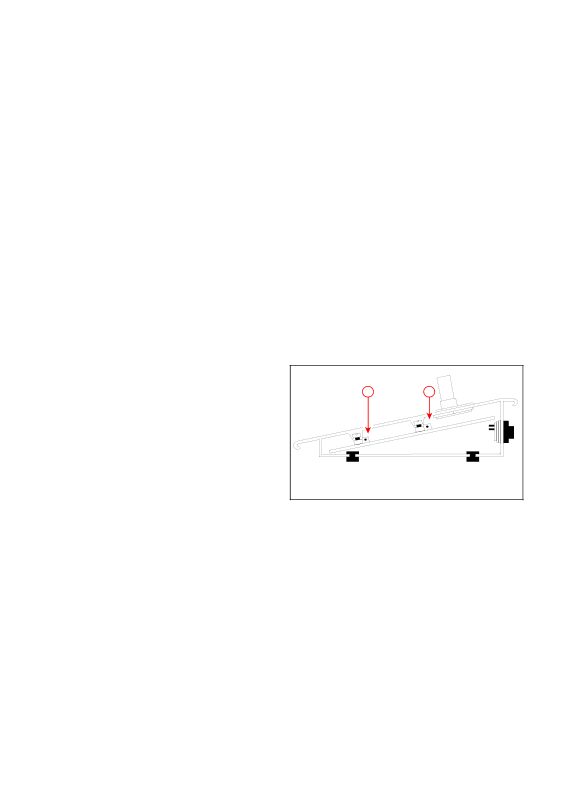
6.2Installation
Loudspeaker Zone Template
A paper template is provided, on which the names of the loudspeaker zones can be written. The template has a detachable blank section at the bottom, allowing it to be used in a typewriter.
To mount the template in the Call Station, first remove the right hand side cheek (fig.6.1D), by unscrewing the two screws in its side (fig.6.1E), and the one screw located in the bottom. The plastic template cover (fig.6.1C) can now be slid out. Place the (type) written template in position over the zone LEDs (having first torn off its blank perforated panel), and carefully slide the plastic template cover back in place.
Connection to Control Centre Between the Call Station and the Call Station Input Module (see chapter 7.1) the following cabling is needed::
■a shielded twisted pair for audio and power transport;
■a twisted pair for data transport. When the copper diameter of each wire is not less than 0.75 mm2 the length of the cable can be up to 1000 meters for proper functioning.
6.3Adjustments
Microphone
NOTE: The Call Station Input Modules also have input gain presets. The
Microphone Preamplifier Gain Preset should only be used for setting the amount of compression, not for lining up the Call Station output with the rest of the SM30 System. See
LED Intensity Preset
With the right hand side cheek removed, it is possible to gain access to the LED intensity preset.
To compensate for various local lighting conditions, the illumination intensity of the LEDs can be adjusted. Turning the potentiometer (fig.6.2A) to the right increases the intensity.
With the template and its cover in position, and the microphone volume and LED intensity adjusted, replace the right hand side cheek.
A | B |
Fig. 6.2 - CST adjustments
6.4Using the Call Station
Using the Keypad to make a Call
1To route a call to one or more loudspeaker zones, simply type in the number of each desired zone using the numeric keypad. Numbers ‘1’ to ‘9’ allow single digit numbers to be entered, number
20